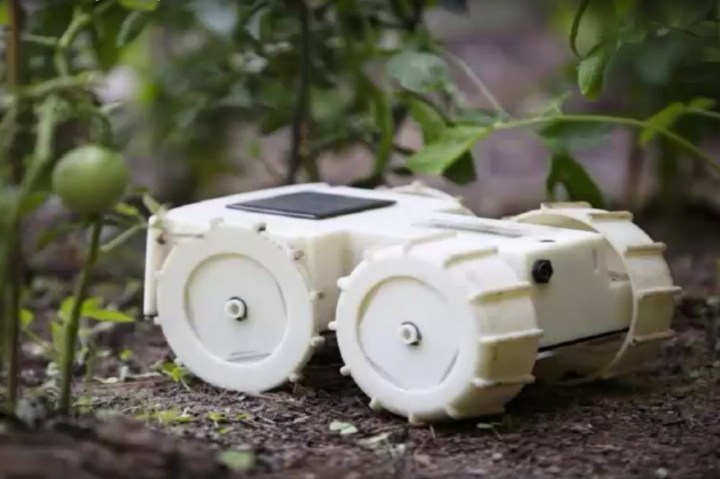
The “Roomba for your garden” is scheduled to launch in summer 2017 with a $250 list price. Jones is developing the Tertill with a new startup, Franklin Robotics. The autonomous weeder can live in your garden year round, needing attention only when its trimmer string needs replacing.
Designed with organic farmers in mind who want to remove weeds from crop fields, the Tertill just needs room to get between the plants you want to keep. Integrated capacitive sensors detect obstacles and when the robot rolls over anything shorter than its one-inch-high bumper, activate the trimmer. Supplied metal collars must be placed around seedlings to protect them until they’re more than an inch tall.
You can sign up for the Franklin Robotics mailing list to stay informed about the Tertill. MIT Technology Review reported that the weed-whacking robot will most likely be launched via a crowdfunding campaign and will also have additional garden-related capabilities.
The plan is for the Tertill to be able to sense and transmit plant and soil data wirelessly to smartphones. In addition, when the garden robot detects small animals approaching, it makes noises to discourage them.
Jones’ future plans could include teams of robots that could take over various chores for commercial gardeners. Specialized robots could be responsible for nurturing whole fields or farms of plant, giving each one the specific care and feeding it needed in precise amounts and at exact times. Other robots could handle pruning tasks and pest control.
The first step, however, is to finish developing the prototype and get the Tertill robot on the market.



